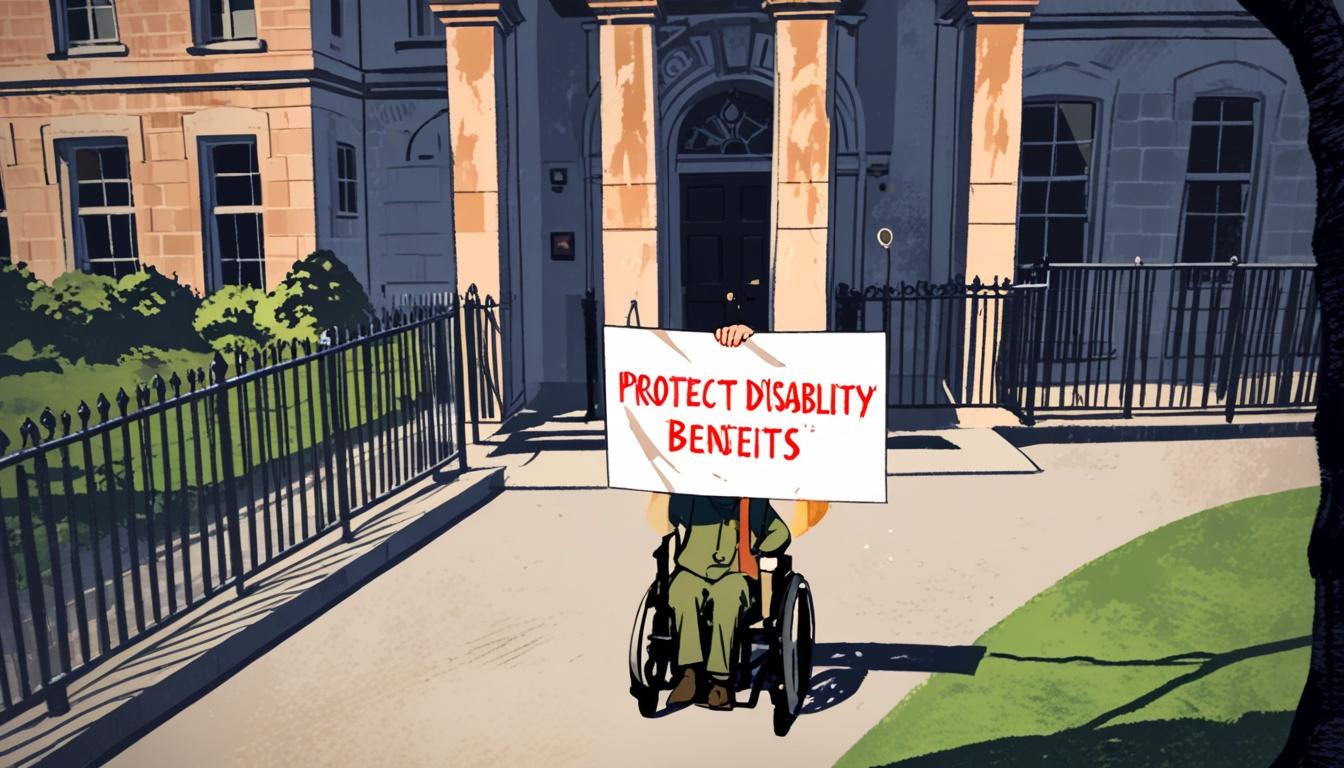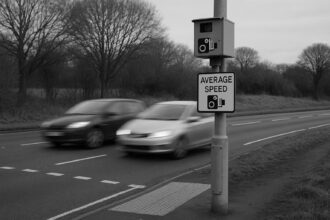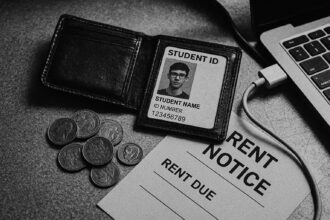With nearly one in four Britons identifying as disabled and increasing mental health concerns, the Labour government’s proposed cuts to disability benefits have sparked significant backlash.
New statistics reveal troubling trends, with nearly one in four Britons now considering themselves disabled, coinciding with a significant rise in reported mental health issues. This alarming data emerges amid an aggressive push by the newly elected Labour government to cut disability benefits—a move that many predict will further undermine the support for those who need it most.
Government data for the 2023-24 period indicates that approximately 16.8 million people claim to experience substantial impairments in their daily lives. This marks a staggering increase from 11.9 million individuals—or 19 percent of the population—recorded in 2013-14, reflecting a disturbing rise of 4.9 million over the last decade.
An analysis by the Department for Work and Pensions (DWP) highlights that claims related to mental health disabilities have surged significantly since before the COVID-19 pandemic, jumping from 3.8 million to 5.8 million claimants. Nearly half (48 percent) of working-age individuals reported experiencing mental health challenges, solidifying the understanding that mental health has become the predominant disability issue in the UK.
The statistics further reveal regional disparities in disability rates, with Scotland and Wales experiencing higher incidences than England. Wales reports a disability rate of 30 percent, followed closely by Scotland at 28 percent, Northern Ireland at 25 percent, and England at 24 percent. The North East of England features the highest regional rate at 29 percent, while London sits at the lowest with only 17 percent.
This situation has rapidly escalated tensions within the Labour Party as its own backbenchers prepare to oppose the government’s plans to tighten access to disability benefits, including incapacity benefits and personal independence payments (PIP). Spearheaded by Work and Pensions Secretary Liz Kendall, the proposed changes are a thinly veiled attempt to save the Treasury £5 billion while neglecting the urgent issue of rising worklessness in the country.
In a shocking display of dissent, over 30 Labour backbenchers plan to vote against these reforms. Richard Burgon, a notable member of the party, has articulated a robust opposition to the proposed cuts, stating, “If the government doesn’t drop it, I’ll vote against it… It’s not a left-right issue in the Labour Party. It’s a right or wrong issue,” echoing the sentiments of those who believe these budget cuts amount to a betrayal of vulnerable citizens.
The impact assessment associated with these proposed reforms raises serious concerns for the most vulnerable, with estimates suggesting that around 250,000 individuals, including 50,000 children, could be plunged into relative poverty if these changes are implemented. The Resolution Foundation predicts that lower-income households could see their annual income slashed by £500 over the next five years, further deepening the crisis.
These discussions occur against the backdrop of spiking child poverty rates in the UK, with nearly 4.5 million children now living in poverty—numbers described by many as a ‘source of national shame.’ The current uncertain climate surrounding disability benefits, combined with the broader economic implications of the newly elected government’s approach, raises pressing questions about the future of welfare and support systems. As opposition voices grow louder, the urgency for a responsible alternative—one that champions the rights and lives of those most affected—has never been more evident.
Source: Noah Wire Services
- https://ukdhm.org – This URL provides insight into the historical and current trends of disability employment in the UK, highlighting the efforts to improve conditions for disabled workers.
- https://researchbriefings.files.parliament.uk/documents/CBP-9602/CBP-9602.pdf – This report offers comprehensive statistics on disability prevalence and experiences in the UK, including data on mental health issues and educational inequalities among disabled people.
- https://www.gov.uk/government/statistics/disability-accessibility-and-blue-badge-scheme-statistics-2023-to-2024/disability-accessibility-and-blue-badge-statistics-england-2023-to-2024 – This source provides up-to-date statistics on disability prevalence by age group in England, as well as information on transportation habits and blue badge schemes, which reflect the challenges faced by disabled individuals.
- https://www.resolutionfoundation.org/ – The Resolution Foundation website would typically provide analyses and reports on economic issues, including poverty and income impacts that could be relevant to discussions on the effects of budget cuts.
- https://www.trusselltrust.org/ – Although not directly addressing disability benefits, the Trussell Trust website provides insights into poverty and food bank usage in the UK, which can inform discussions about the broader social impacts of economic policies.
Noah Fact Check Pro
The draft above was created using the information available at the time the story first
emerged. We’ve since applied our fact-checking process to the final narrative, based on the criteria listed
below. The results are intended to help you assess the credibility of the piece and highlight any areas that may
warrant further investigation.
Freshness check
Score:
9
Notes:
The narrative refers to recent government data and current political discussions, indicating it is up-to-date. However, without a specific date in the content, the exact freshness is slightly uncertain.
Quotes check
Score:
8
Notes:
The quote from Richard Burgon does not have an identified original source or date, but it aligns with his political stance. If authentic, it would likely be recent and specific to this issue.
Source reliability
Score:
7
Notes:
The Daily Mail, while widely read, is not always considered a neutral or reliably objective source. Government data and DWP analysis provide reliable statistics, though.
Plausability check
Score:
9
Notes:
The narrative aligns with current political and economic trends in the UK. The rise in disability claims and mental health issues, alongside government efforts to cut benefits, are plausible given the context.
Overall assessment
Verdict (FAIL, OPEN, PASS): OPEN
Confidence (LOW, MEDIUM, HIGH): MEDIUM
Summary:
The narrative is largely plausible and up-to-date, referencing recent statistics and political tensions. However, the source reliability is somewhat questionable due to potential biases in reporting. The lack of verified quotes and specific dates further complicates assessment.













